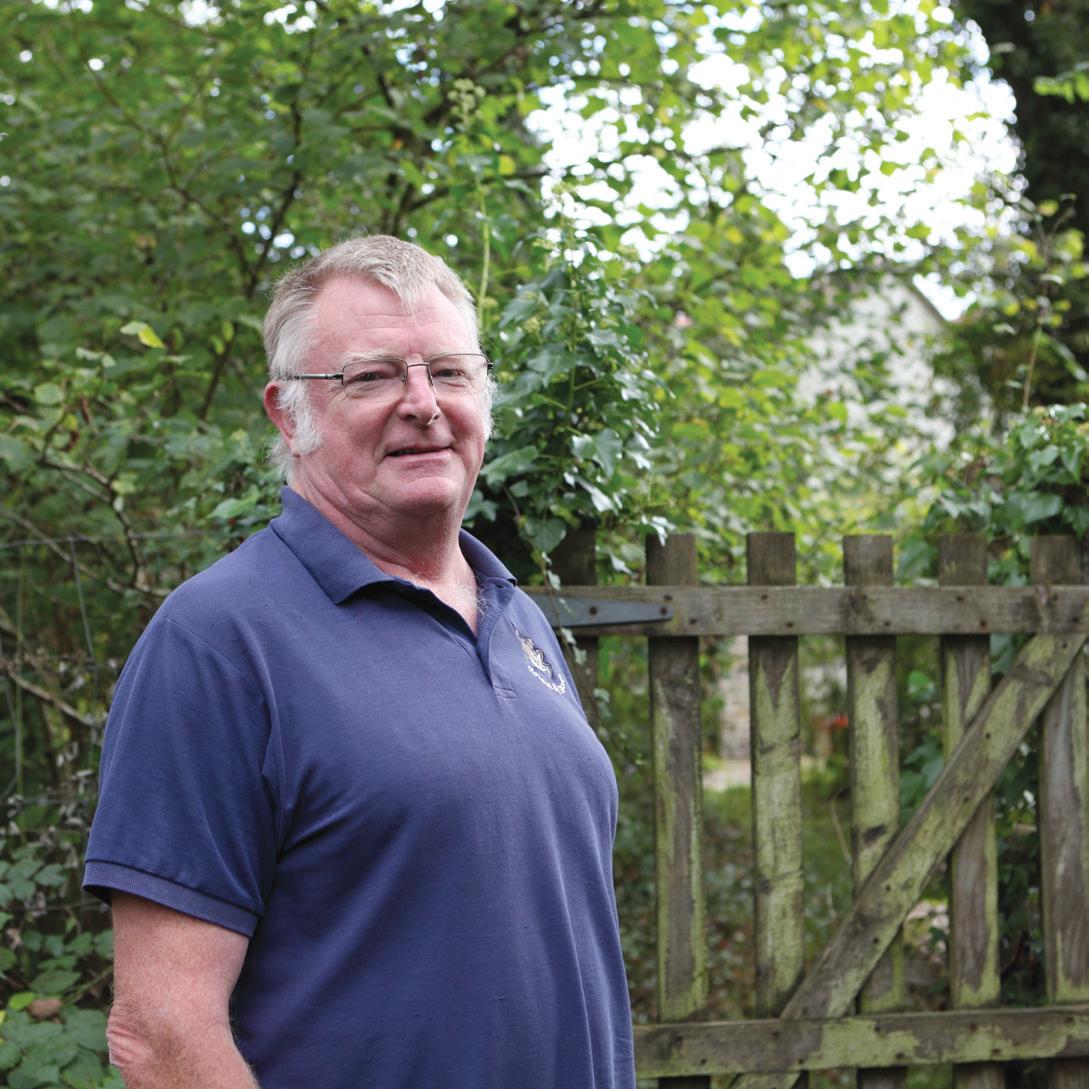
11 minute read
Cover Story By Robin Mills
Robin Mills met Nick Tomlinson near Longburton, Dorset
© Nick Tomlinson Photograph by Robin Mills
Advertisement
L’ ike a lot of people in my line of work I grew up obsessed with the natural world. My childhood was spent on a farm in the Lake District with wonders like toads in the garden and crayfish in the stream, and I spent hours and hours just pootling in the garden, seeing what I could find, and revelling in it. I found school a bit of a distraction from what I really wanted to be doing, so didn’t achieve much academically at that time.
I joined the Navy at 16, a life which took me away from my childhood interest, but even then, out at sea, there were the birds to watch, so that fascination’s never completely gone away. I had started work in a hotel kitchen and thought I was going to be a chef, but a lot of my mates joined the forces at that age and I did the same. I was in the Navy for over 10 years, and loved the life, seeing many different parts of the world. But looking back I think of that time as having been a bit asleep, and when I left my fascination with nature reawakened.
I went back to college and got an OND, then went to University and got a degree in physics. Studying for a scientific degree, although in a subject not directly connected to what turned out to be my working life, fulfilled something which has always been a
Nick Tomlinson
big part of my nature—a need to find out how things work, and why.
I worked for a while in industry and in the public sector, then in 1999 I got my first job in conservation, which was comparatively late in life. All through my OND and degree courses I had been volunteering on a local nature reserve, and at one point I thought I might pack up the degree and go to work there full time, but after discussing it with my wife thought better of it and finished the course. So it took me a long time to get my toe through the door.
My first job in conservation was for the RSPB at Radipole Lake in Weymouth, working in the visitor centre. My previous job had been in IT, so I took a big pay cut, but the quality of life went through the roof. It’s an amazing place, teeming with all sorts of wildlife, even though it is situated in the middle of a town, and I think that was where my interest in bats took hold. My wife and I joined a course run by the Dorset Wildlife Trust to train as volunteer roost visitors, which enabled me to advise people what to do with bat roosts in their houses, and I was immediately hooked. I soon realised that Radipole was absolutely heaving with bats. Later we found that there were Nathusius’ Pipistrelles (a migrant species from Scandinavia and Russia) and Brandt’s bats, both comparatively rare species, to be found there. Then I went to work for the Bat Conservation Trust, who are the leading non-governmental body for bat conservation in the UK. Coming back to Weymouth a year later I was site manager for the RSPB’s Weymouth and Lodmoor nature reserves for 7 years. And after a spell working for both Dorset and Somerset Wildlife Trusts, I went self-employed 6 years ago.
In the early days most of my work was about advising homeowners who wanted to convert a loft or build an extension, who needed to get a bat survey done to help with planning. I would guide them through the process so that they got the development they wanted but the bats were also safeguarded. I also run a number of research projects, some of which are voluntary, such as radio tracking the rare Bechstein’s bats here at Clive Farrell’s Ryewater Nursery. I am slowly doing more and more research projects, and I find the work fascinating. One of the things I love about these creatures is the challenge of studying them. They fly at night for a start, which brings its own challenges, and they use echolocation to navigate, so you need to understand how that works, which is something we only discovered in the middle of the last century. If you compare our knowledge of bats to what we know about birds, there is still so much to learn. For instance radio tracking Greater Horseshoe bats recently was hugely satisfying because we found all sorts of information we didn’t know before. One big unknown is we don’t actually know where over 90% of our bats spend the winter. I’m now applying the results of my research to working with organisations like the National Trust, Natural England, and the Wildlife Trusts and that’s where I’d like to see the future of my work going, encouraging everyone to do the best for bats.
In the UK there are 17 or 18 species of bat, of which 9 are on the UK Mammal Society’s red list, which puts them in the same category as so many species these days, at risk of extinction. Sometimes we simply don’t know enough about that species’ population numbers or its habitat use. But bats use many sites to roost, which include buildings which often get converted or developed, so they lose places to breed—and bats are very particular about their breeding sites. Their food source, insects, has also declined massively over the last 30 or 40 years. Light pollution is another big one; as a sweeping statement, bats don’t like light at night, so street lighting and illuminated buildings are a problem. Sometimes they have a fantastic place to live, and a great source of food, but they can’t get from one to the other because features in the landscape which they move through, like hedges, have gone, or there’s too much illumination. We think some species’ numbers are improving due to legislation and conservation measures, but there’s still a lot to do.
Planning for development now has to take account of biodiversity gain, so places for wildlife species to live have to be designed in to new schemes. But the simplest thing anyone can do is to allow places to be a bit more untidy. Leave a few patches of nettles and brambles in your garden and stop being so neat. Wildlife can thrive in urban settings if all the right conditions are there; Radipole is a good example, because although it’s surrounded by housing and street lighting, there’s a fantastic dark corridor formed by the river Wey along which bats can travel.
In fact, Dorset is one of the best counties for bats in the UK and, like many other counties, it has its own voluntary group, the Dorset Bat Group. We undertake a range of surveys and activities that give people the chance to get up close and personal with some of the country’s rarest animals and the great news is you do not need any experience or knowledge, we welcome anyone and everyone.
We also run a series of research projects, aimed at trying to understand our bats a little better and safeguard them for the future, part of which also includes running training courses for people who would like to learn a bit more and perhaps work towards running their own projects.
Each winter, for the last three years, we have had a series of on-line evening talks, exploring the world of bats, both in the UK and around the world (we’ve got a talk on vampires this year!). Hopefully, by next year, we’ll get back to holding these events in person. As with many things, the last couple of years have been a bit of a challenge, thanks to Covid, and we have not done as much as we might have wished, but we are re-starting things, slowly and, by next year, we hope to restart our regular programme of events, including talks and walks for the public, which act as kind of taster sessions to see if these amazing creatures fascinate you as much as they do us! ’
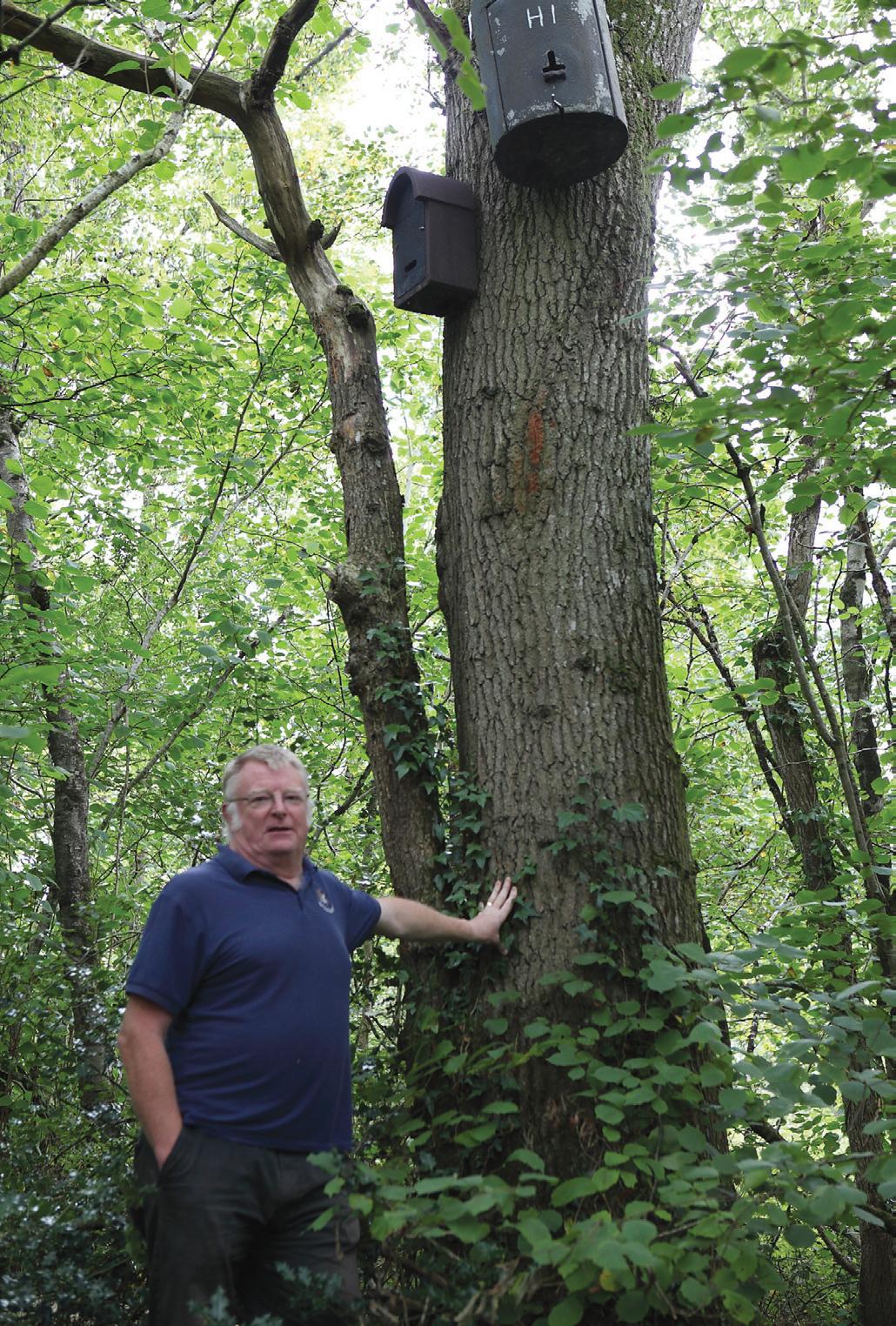


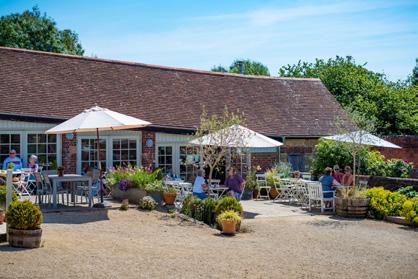








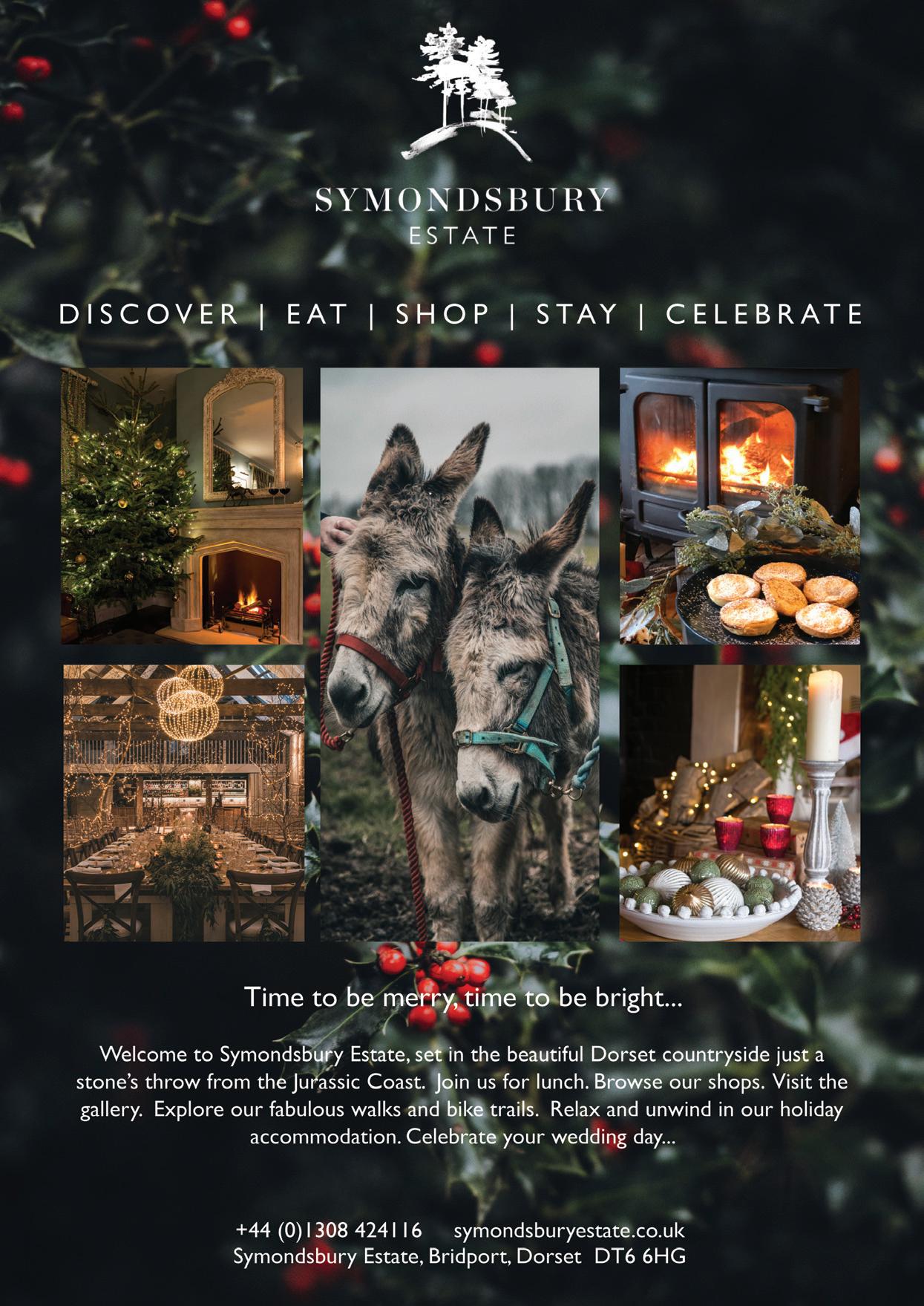
After the last couple of years, I guess we’re all ready for a season of goodwill: a time to think of friends and family, spread some Christmas cheer, bury the hatchet (no, not like that!) and get involved in a little bit of kindness. Let’s face it there is no shortage of Christmas movies showing us how we can make this a better world. In a recent discussion about kindness on Radio 4, one of the participants in the show, Jennifer Nadel, from the organisation Compassion in Politics, pointed out some of the advantages of putting kindness at the forefront of how we live our lives. ‘If we are fear-based and we focus on the things we fear, we will become more fearful’ she said. ‘If we focus on kindness, we will become more kind.’ On the same programme, Pinky Lilani, Founder and Chair of the Women of the Future Programmes, said she made a habit of carrying five chocolate gold coins with her every day to give out to people who are nice to her. Other than the occasional person saying they don’t like chocolate, she gets a very positive response. The value of actions such as this has been identified in many research projects and may well seem obvious; that there is usually a ripple effect spreading from a single act of kindness that brightens up other people’s lives throughout the day. Asked whether there was a time when there was more kindness in politics, Jennifer Nadel pointed out that one of the most impressive times in this country’s history was the period after the Second World War and the establishment of the welfare state. ‘Everyone had a common goal to try and pay something back to those that had laid down their lives’ she said. However, she also explained that lately we have begun to forget the horrors that humanity can inflict on itself. With a slew of individual agendas prowling the digital world it is easy to be distracted from the benefits of real community engagement and collective interaction. So, looking at the selection of events and gatherings scheduled for the coming month, it’s heart-warming to see that in the run-up to Christmas there are many opportunities for people to catch up and refresh, especially after a time of enormous upheaval—mentally, physically, personally and politically. Merry Christmas. 3 Cover Story By Robin Mills 10 Mapperton - opening the archives By Fergus Byrne
12 Past Present and Future - Lee Elliot Major 16 Event News and Courses 22 News & Views
23 Latterly Speaking By Humphrey Walwyn 24 The Holly & The Ivy By Philip Strange 28 Buried Heads (in the sand) By Cecil Amor
30 House & Garden
30 Vegetables in December By Ashley Wheeler 32 December in the Garden By Russell Jordan 34 Property Round Up By Helen Fisher
36 Food & Dining
36 Festive Mini Croissants By Lesley Waters 38 Pheasant and Squash Curry By Mark Hix 40 Sharing a Brew By Fergus Byrne
42 Arts & Entertainment
42 Los Pacaminos By Fergus Byrne 46 Preview By Gay Pirrie Weir 51 Young Lit Fix By Antonia Squire
52 Galleries
55 Screen Time By Nic Jeune
56 Health & Beauty 57 Services & Classified
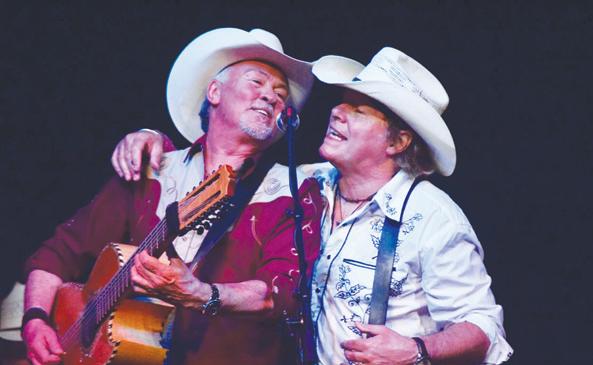
Fergus Byrne
Published Monthly and distributed by Marshwood Vale Ltd Lower Atrim, Bridport Dorset DT6 5PX
For all Enquiries Tel: 01308 423031 info@marshwoodvale. com Editorial Director
Fergus Byrne
Deputy Editor
Victoria Byrne
Design
People Magazines Ltd Like us on Facebook Instagram marshwoodvalemagazine Twitter @marshwoodvale
Contributors
Cecil Amor Seth Dellow Helen Fisher Richard Gahagan Mark Hix Nic Jeune Russell Jordan Robin Mills Gay Pirrie Weir Antonia Squire Philip Strange Humphrey Walwyn Lesley Waters Ashley Wheeler
The views expressed in The Marshwood Vale Magazine and People Magazines are not necessarily those of the editorial team. Unless otherwise stated, Copyright of the entire magazine contents is strictly reserved on behalf of the Marshwood Vale Magazine and the authors. Disclaimer: Whilst every effort is made to ensure the accuracy of dates, event information and advertisements, events may be cancelled or event dates may be subject to alteration. Neither Marshwood Vale Ltd nor People Magazines Ltd can accept any responsibility for the accuracy of any information or claims made by advertisers included within this publication.
NOTICE TO ADVERTISERS
Trades descriptions act 1968. It is a criminal offence for anyone in the course of a trade or business to falsely describe goods they are offering. The Sale of Goods Act 1979 and the Supply of Goods and Services Act 1982. The legislation requires that items offered for sale by private vendors must be ‘as described’. Failure to observe this requirement may allow the purchaser to sue for damages. Road Traffic Act. It is a criminal offence for anyone to sell a motor vehicle for use on the highway which is unroadworthy.











